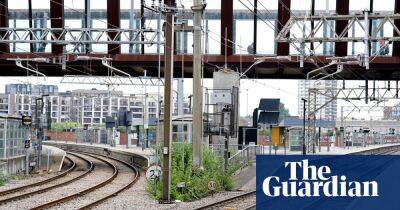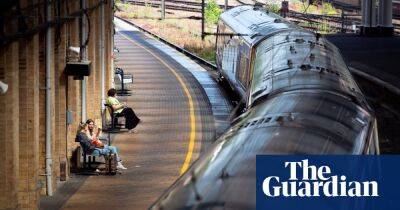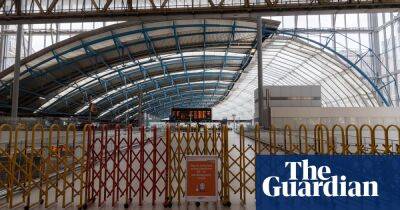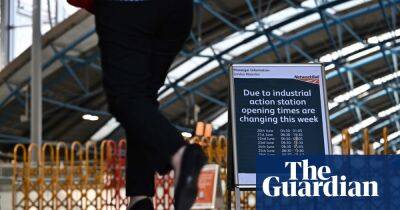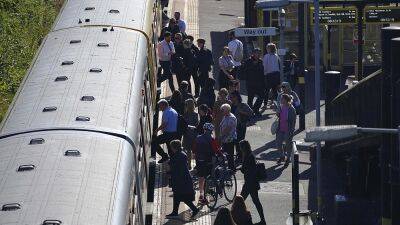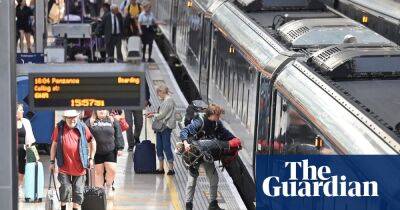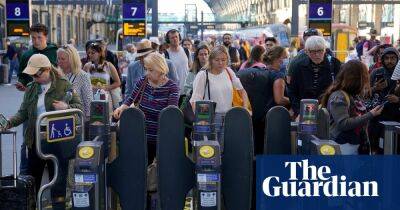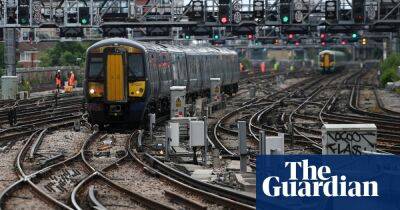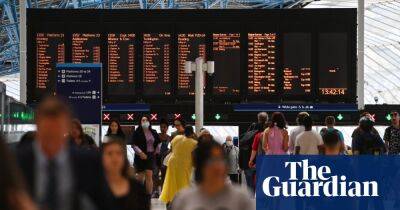Passengers face disruption as Britain’s biggest rail strike for decades begins
Train passengers were facing widespread disruption and cancellations as Britain’s biggest nationwide rail strike for 30 years began on Tuesday morning.
Workers responsible for train lines and infrastructure across the UK walked out on Tuesday – with further action on Thursday and Saturday – leaving thousands of services cancelled and passengers forced to seek alternative means of transport.
Only about 4,500 of the usual 20,000 daily services were expected to run due to the walkout by 40,000 RMT union members at Network Rail – the organisation that maintains the system – and 13 train operators.
Those train companies where workers are not going on strike will still suffer from disruption due to Network Rail signallers walking out.
Much of Britain will have no passenger trains for the entire day, including most of Scotland and Wales, the whole of Cornwall and Dorset, and places such as Chester, Hull, Lincoln and Worcester.
Services will primarily be restricted to main lines, but even those will only be open between 7.30am and 6.30pm.
Disruption was expected to rumble through the non-strike days of Wednesday, Friday and Sunday, complicating journeys for commuters, schoolchildren and holidaymakers.
London Underground workers will also strike for 24 hours on Tuesday, bringing the capital’s transport system to a halt.
Last-ditch talks on Monday failed to resolve the bitter dispute over pay, jobs and conditions, with all sides blaming each other for the lack of progress.
The RMT general secretary, Mick Lynch, said the rail dispute could not be resolved without the government “removing the shackles” on Network Rail and train operating companies. All parts of the rail industry, as well as Transport for London, have been told to find
Read more on theguardian.com







